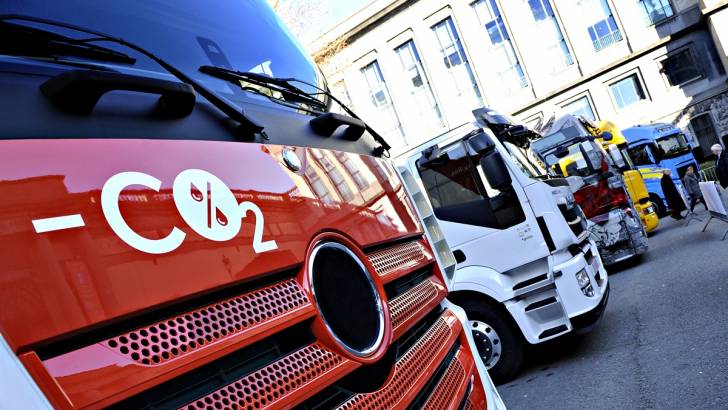The leaders of Europe’s truck industry are calling on EU member states to act swiftly when it comes to deciding on legislation fixing the region’s first-ever CO2 standards for heavy-duty vehicles. In May, the European Commission proposed CO2 targets for trucks for the years 2025 and 2030, with an interim review in 2022. This proposal is now in the hands of the European Parliament and the Council, which brings together the 28 member states.
“As the European Parliament ends its term next year, we urge MEPs and ministers to come to a quick political decision on a reasonable solution that can be implemented in a timely manner. Otherwise we risk major delays in introducing the new CO2 targets, to the detriment of the environment as well as the workability of the legislation.” stated Joachim Drees, CEO of MAN Truck & Bus and Chairman of the Commercial Vehicle Board of the European Automobile Manufacturers’ Association (ACEA).
ACEA supports the two-step approach proposed for this new legislation. Given the state of the truck market and technology today, industry believes that a 7% CO2 reduction by 2025 and 16% by 2030 are ambitious yet realistic. ACEA also agrees with the need for an interim review in 2022. However, based on this review, it should be possible to adjust the 2030 target upwards or downwards in order to reflect the realities of the truck market at that point in time.
The review should, for example, take into account the availability of refuelling and recharging infrastructure for alternatively-powered trucks, including along motorways, as well the market uptake of such vehicles. Here, the challenges are extremely different than for passenger cars, especially when it comes to long-haul transportation.
Given its long product cycles, the development of trucks to be delivered to customers in 2025 is underway right now. To meet any 2025 CO2 target, manufacturers will therefore have to fit new technologies to trucks that are already under development, even if this was not originally planned. “From an industrial perspective, this is a major challenge. Despite this, we still stand by the objective of introducing realistic targets in 2025” explained Drees, speaking in the side-lines of the IAA Commercial Vehicle Motor Show.
Drees: “We are calling on policy makers to not only to act swiftly, but also to ensure a robust and reasonable legislation, with properly designed CO2 targets that take into account the complexity of the truck market.” This means that the targets need to be in line with what is technologically possible and economically viable, and that the framework should provide enough flexibility and the right enabling conditions to ensure that these first-ever CO2 targets are also deliverable in practice.
The future CO2 standards for trucks will be discussed by EU Environment ministers at a meeting on 9 October. Key European Parliament votes on this dossier will also take place next month.
